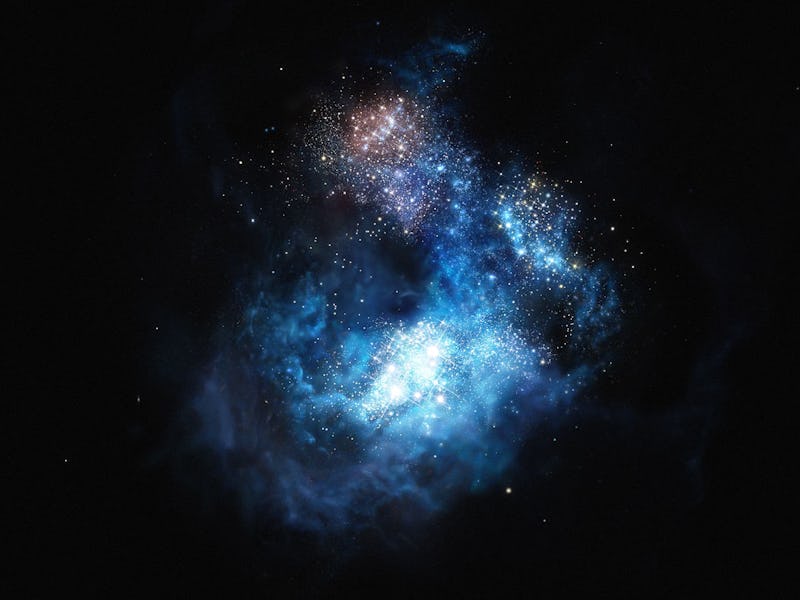Physicists Apply Brakes to Accelerating Expansion of the Universe
New research could permanently upend the standard model of cosmology as we know it.

The notion that the universe is expanding at an accelerating rate is taken as fact by the physics community. The three scientists who made that discovery won the Nobel Prize five years ago. And yet, new research by Oxford University physicists suggests that it may not be that simple. There may not be any acceleration at all. If they’re right our understanding of dark energy is up for debate and so is our standard model of cosmology.
It just got more confusing to living in this particular universe.
Published in Nature’s Scientific Reports, the findings incorporate an analysis of an expanded data set and instead suggests the supporting evidence for accelerated expansion is not as airtight as previously suggested. The new data set, which the researchers say is 10 times bigger than than the Nobel-winning data set was, includes a catalogue of 740 Type Ia supernovae, which occur in binary star systems. Type Ia supernovae are important to research into dark energy — which is hypothesized to make up 68.3 percent of all energy in the universe and essentially drive forward the acceleration of universal expansion. Type la supernovae flare up with the same brightness as the stars they burst out from, and therefore glow for large distances across space. Measuring the distance of this brightness is key to researching the changing dynamics of the expansion of the universe.
According to Subir Sarkar, lead author of the Oxford team who wrote the new paper, the new data is more consistent with a constant rate of expansion for the universe. He and his team found that the evidence for accelerated expansion is, “at most, what physicists call ‘3 sigma’,” he said in a news release. “This is far short of the ‘5 sigma’ standard required to claim a discovery of fundamental significance.”
For context, Sarkar recalled the example of the new particle the Large Hardon Collider at CERN found last December, which had a significance between 3.9 and 3.4 sigma. An analogous example in this context would be the recent suggestion for a new particle weighing 750 GeV based on data from the Large Hadron Collider at CERN. In August, however, that confidence dropped after new data showed the significance plummet to less than 1 sigma — indicating the initial data was almost certainly a statistical fluctuation.
The new findings, if true, would also put doubts behind current estimates of how much of our universe is made of “dark energy.” If it turns out the universe is not expanding at an accelerated rate, it upends the entire standard model of cosmology and raises big questions about whether dark energy is real, whether it plays a role in universal expansion, or whether it does something else entirely.
Sarkar and his team, however, are only poking holes in one of the many pieces of supporting evidence the universe is expanding at an accelerated rate, and not a constant one — such as the cosmic microwave background of the universe. But Sarkar thinks those tests were conducted on an assumption of an assumed model of accelerated expansion — and he also says “cosmic microwave background is not directly affected by dark energy.”
Sarkar may be onto something, but he’s going to need a lot more evidence to bolster this hypothesis, and a lot more time to persuade his fellow scientists to take this seriously.
“Naturally, a lot of work will be necessary to convince the physics community of this, but our work serves to demonstrate that a key pillar of the standard cosmological model is rather shaky,” he said. “Hopefully this will motivate better analyses of cosmological data, as well as inspiring theorists to investigate more nuanced cosmological models.”